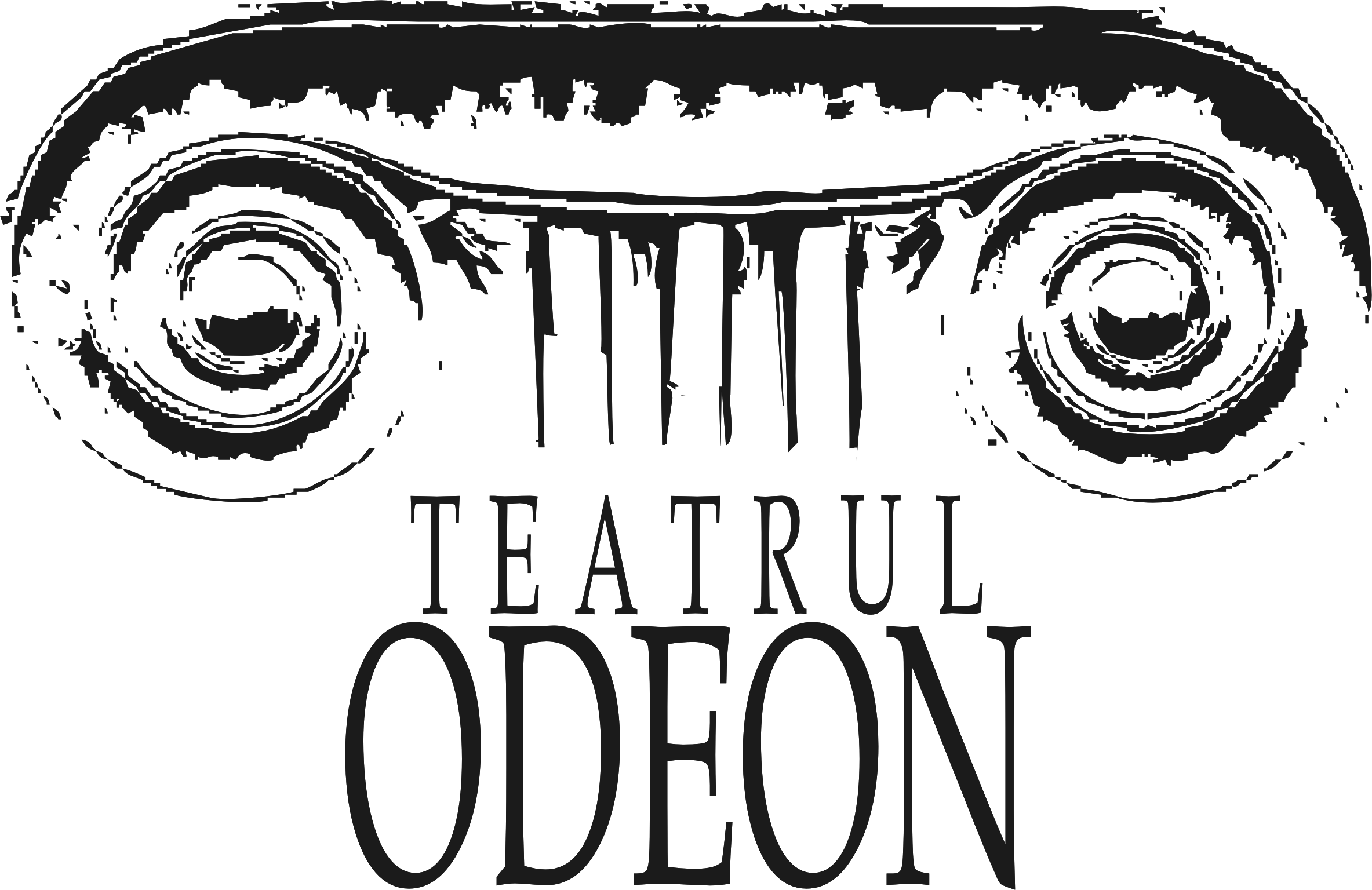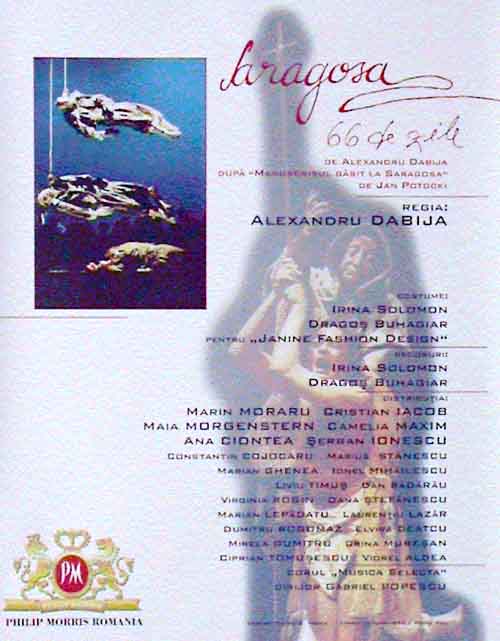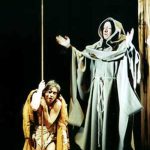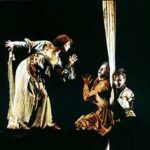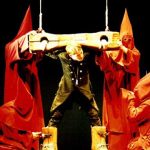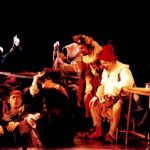after Jan Potocki, directed by Alexandru Dabija
International premiere
June 24, 1999 at the Hebbel Theater, during the “Theater der Welt”-Berlin festival
National premiere
October 8, 1999 at the Odeon Theatre
Alfons: Cristian Iacob
Zibelda, the whore, the gypsy woman, Camilla, the nurse, Solomon’s daughter: Maia Morgenstern / Crina Mureşan
Emina, the whore, the gypsy woman, Inesilla, the nurse, Solomon’s daughter: Camelia Maxim
Rebecca: Ana Ciontea / Mirela Dumitru
The Dominican monk, the wandering Jew, Zoto, Pantalone: Șerban Ionescu
Enrique de Sa, Mamun, Enrique Velasquez: Constantin Cojocaru
Pacheco, young Masud: Marius Stănescu
Velasquez, priest of the Inquisition: Ioan Batinaş
Lopez, Momo, Felipe, The Commander, a Jew, The Pharisee: Mircea Constantinescu
Alfons’ father, the cabalist: Marian Ghenea
The French colonel, Monaldi, Brighella, Don Sancho, a Jew: Ionel Mihăilescu
The head of the gypsies, a Dominican monk: Liviu Timuş
Hierro, Marquise Feltri, Carlos, The Marquise of Folencour: Dan Bădărău
Laetitia, the Inquisitor, the nurse: Virginia Rogin
Mosquito, duelist, Arlecchino: Marian Lepădatu
The inkeeper, Inquisition monk: Laurenţiu Lazăr
Father Velez, Cicio, Germanus: Dimitrii Bogomaz
Blanca, Inquisition monk: Elvira Deatcu
The twins of the zodiac: Toader Tomoioaga & Lucian AlexaDirected by: Alexandru Dabija
Costumes: Janine Fashion Design
Stage design: Irina Solomon and Dragoș BuhagiarCoral arrangements: Gabriel Popescu
Choreography: Malou Iosif
Mime: Dan Puric
Scenic movement: Ionel Mihăilescu
Fencing: Szoby Cseh
Mastile de commedia dell’arte: Liviu Bora
Choir, music selected: Ștefan Barbu, Cezar Bălan, Ioana Calomfirescu, Andreea Ciornenchi, Claudia Deleanu, Irina Duță, Raluca Enea, Raluca Ioan, Daniel Jinga, Mihaela Milea, Maria Miron, Camelia Mocanu, Camelia Nistor, Liviu Petu, Nicoleta Radu, Mihnea Stănescu
Conductor: Gabriel Popescu
SMART co-production, the Odeon Theater and the “Theater der Welt–Berlin” festival, under the auspices of THEOREM, program coordinated by the “Festival d’Avignon”
“Saragosa Manuscript”, written by Jan Potocki, the model is built on the “1001 Nights”. Walona guard captain, crossing France to reach the Spanish king Alfonso van Worden young lives, a journey without end, a variety of adventures: the servants leave him alone in a wilderness area and wildlife, found an inn where, midnight, is visited by two Muslim sisters who claim to be his cousins from the mother but in the end, we discover that they are demons. Waking up the next day as the two hanged after a night of love, hitting the way they meet young people who, somehow or other, have lived the same experience.
At the end of the millennium problem humanity has a name: the conflict between the major monotheistic religions: Christianity, Judaism and Islam.
Saragosa speaks of hope and illusion. Hope that the world is an illusion and the illusion that we act upon reality, that man has power over the world and its own destiny.
Press Reviews
Irina Solomon and Dragos Buhagiar gave a special rhythm to the performance by alternating and marking spaces, plans, and directions, horiyontally, vertically and obliquely. Their costumes become a sign that describes places, religions, events. Light and music enhance the mystery and illusin of the theatre.
The actors do a real tour de force. They play their parts with voluptuousness, pleasure and devotion, taking over the director’s irony, his talent to parody and his subtle humour. Well-known actors get into the chorus, or step out of it, play secondary or main characters, with genuine artists’ humility and responsability.


